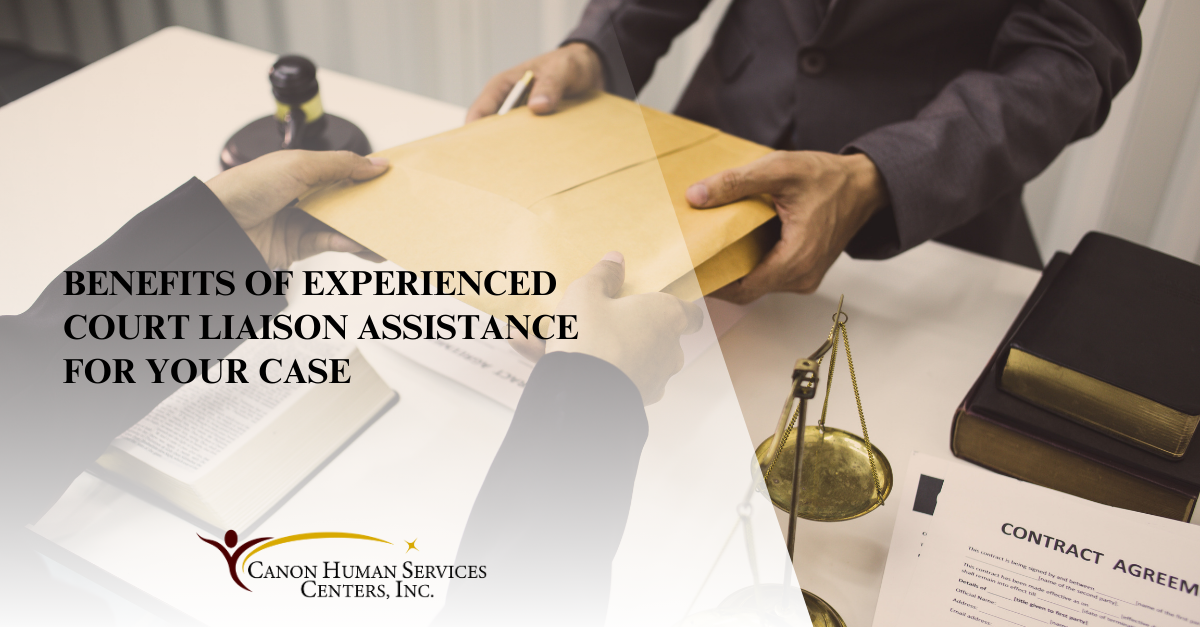Navigating the legal system while dealing with substance abuse or chemical dependency can be overwhelming. Between court dates, legal requirements, and treatment programs, it’s easy to feel lost or discouraged. That’s where court liaison assistance becomes invaluable. We can help. Our specialized support can bridge the gap between legal obligations and recovery, ensuring a smoother, more structured path forward.
Understanding Court Liaison Assistance in Depth
At its core, this assistance is about coordination, advocacy, and compliance. Many people struggling with addiction face legal consequences—such as DUIs, drug possession charges, or probation violations—that require court-mandated treatment. Without proper guidance, these legal demands can become overwhelming, leading to missed deadlines, miscommunications, or even harsher penalties.
What Does a Court Liaison Actually Do?
A court liaison is a trained professional who specializes in managing the intersection of legal and treatment systems. Their role involves several key responsibilities:
Facilitating Clear Communication Between All Parties
Legal cases involving substance abuse often require input from multiple stakeholders, including:
- Judges and magistrates
- Defense attorneys and prosecutors
- Probation and parole officers
- Treatment providers (counselors, rehab centers, drug testing facilities)
The court liaison ensures that:
- Judges receive accurate, timely updates on the client’s treatment progress.
- Treatment providers understand the legal requirements imposed by the court.
- The client fully comprehends what is expected of them.
Without this intermediary, miscommunication can lead to misunderstandings—such as a judge believing a client is non-compliant when, in reality, they were never properly informed of a requirement.
Help With Compliance with Court Orders
A court liaison helps by:
- Tracking deadlines and court dates to prevent missed appointments.
- Verifying attendance and progress with treatment providers.
- Alerting the client (and their attorney, if applicable) if any compliance issues arise.
This proactive approach minimizes the risk of further problems due to administrative oversights.
Advocating for the Client’s Best Interests
A skilled court liaison does more than just file paperwork—they advocate for the client.
This advocacy can lead to more favorable outcomes, such as reduced charges, alternative sentencing (like rehab instead of jail), or early termination of probation.
Reducing Stress and Confusion for the Client
Legal jargon, complex paperwork, and fear of consequences can make court-ordered treatment feel like an impossible maze. A court liaison simplifies the process by:
- Explaining requirements in plain language.
- Handling paperwork and filings on the client’s behalf.
- Preparing the client for what to expect in court.
This support allows the individual to focus on recovery rather than bureaucracy.
How Court Liaison Assistance Differs from Legal Representation
Many people assume that a court liaison serves the same function as a defense attorney, but their roles are fundamentally different. While both professionals work within the legal system, they focus on separate aspects of a case.
A defense attorney’s primary responsibility is to protect the client’s legal rights. They handle plea negotiations, argue against charges, and work to minimize penalties such as fines or jail time. Their expertise lies in criminal law, and their goal is to secure the best possible legal outcome for the case.
On the other hand, a court liaison specializes in treatment compliance and system coordination. Rather than arguing legal strategy, they ensure the client fulfills court-mandated rehab or counseling requirements. They communicate directly with judges, probation officers, and treatment providers to verify progress and prevent misunderstandings that could lead to penalties.
Another key difference is their interaction with the court. While an attorney advocates for the client in hearings and trials, a court liaison acts as a bridge between the legal system and recovery programs. They submit progress reports, confirm attendance, and sometimes advocate for adjustments to treatment plans—all with the goal of keeping the client on track.
In short, a defense attorney fights the legal battle, while a court liaison helps the client successfully navigate the obligations that come after sentencing or probation. Both roles are valuable, but they serve distinct purposes in the journey toward recovery and legal resolution.
Higher Success Rates in Recovery and Legal Outcomes
Studies show that individuals who receive structured support during court-ordered treatment are more likely to complete programs successfully and avoid relapse. Studies have shown that integrated legal and treatment support leads to:
- Lower recidivism rates
- Better long-term recovery outcomes
- Improved reintegration into society
Court liaison assistance plays a crucial role in these positive results by ensuring that legal and treatment goals are aligned.
Why Experience Matters in Court Liaison Services
Not all court liaison programs are the same. Experienced professionals, like those at Canon Human Services, understand:
- The nuances of different court systems
- How to present treatment progress effectively to judges
- Strategies for negotiating alternative sentencing when appropriate
This expertise can mean the difference between a dismissed charge and prolonged legal trouble.
Court Liaison Assistance That’s Ready to Help
If you’re facing legal challenges related to substance abuse, court liaison assistance can provide the structure and advocacy needed for a better outcome. Canon Human Services offers this specialized support to help clients meet legal requirements while focusing on lasting recovery.
Navigating the legal system doesn’t have to be a roadblock in your recovery journey—with the right support, it can be a stepping stone toward a healthier, more stable future. Reach out today to see how we can help.

